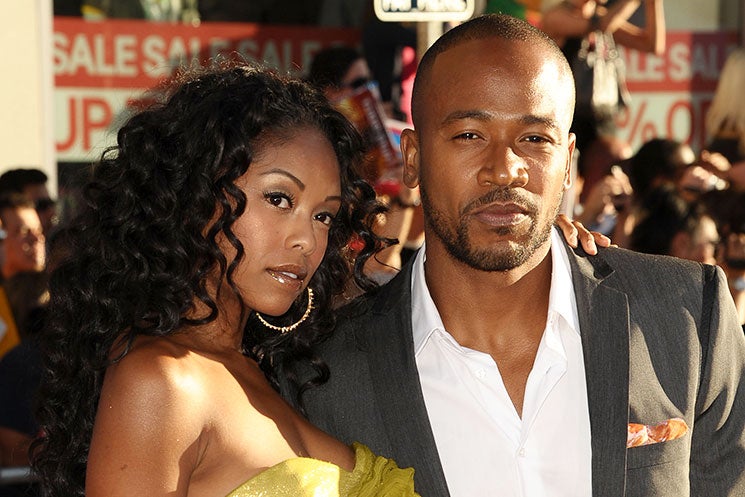
The painful effects of domestic violence know no limits or boundaries regardless of social status and actress Tanee McCall is speaking out against using celebrity domestic violence incidents as entertainment.
Speaking candidly about her own experiences with ex-husband Columbus Short, Tanee addressed a recent interview Short did for TMZ’s Raq Rants video series and gave valid criticisms to host Raquel Harper in an open letter penned shortly after the sit down aired.
The former couple’s highly publicized split and subsequent divorce included multiple reports of domestic violence throughout the course of their marriage, and Tanee says she was disappointed to see the TMZ host address the issue with such little regard during the interview. “I watched your “Raq Rants” interview with my abuser,” she wrote in a heartfelt op ed for the The Root. “Long after the screen went black, your laughter and his voice echoed in my head. I tossed and turned for several nights with so much anger and hurt weighing on my chest that it was hard for me to breathe.”
After briefly questioning what it was about this particular interview that caused her to react on a such a personal level, Tanee went on to express how she soon realized that seeing another woman of color — one who looked much like the women who helped her through the aftermath of her public divorce — seemingly siding with her “abuser” is what triggered her emotions.
Subscribe to our daily newsletter for the latest in hair, beauty, style and celebrity news.
“And you know what I realized? I realized that it was you, Raquel—you were the toxic variable for me,” she continued. “I have grown accustomed to the Assailant not taking any responsibility for his violent actions toward me and other women; I have learned to brace myself against his gaslighting.
But you, sister, you look just like me. You mirror the countless women who provided loving shelter for me and my toddler when we were left homeless—when that last instance of abuse finally shattered our twisted normal. You look like the queens who watched my child when I became an Uber driver, taught dance classes and took any temp job I could find—and at one point worked six jobs at once—just to find a way to provide for my child post-Scandal. You physically embody the sisters who helped feed, clothe, love, heal, empower and guide me while I stitched my torn self-esteem back together bit by bit over the past grueling years.
That is why I am writing to you, so that I can let you know from the bottom of my heart how disappointed and hurt I am that you flirted and fluttered your way around for almost 15 minutes with a man convicted of beating me.”
Tanee went on to speak about the dangers of assuming that abusers fit the stereotype depicted on television or in the media. She noted that Raquel’s description of her ex-husband as someone who “seems like a nice guy,” during their interview is the same mindset that prevents so many people from recognizing the defining characteristics of an abuser, before later describing what she remembers of experiencing abuse from her husband in public settings.
“Raquel, I understand that it was uncomfortable for you to bring up “the domestic violence situation” in your interview—your body language and tone gave it away—so you padded the tarmac for the Abuser to ensure his smooth landing. Words to grow on: Whether you are speaking to a domestic violence victim, survivor or abuser, there may be feelings of discomfort involved. Have the truthful conversations anyway.
We are taught that relationships—especially problems in relationships—are private. It isn’t something that bystanders want to get involved in, even if they are aware that something is amiss, because it isn’t “any of our business.” But this is when silence can truly kill. When my abuser would act out in front of others, I can only remember a handful of times that people actually stepped in and said something. Because of their discomfort, most of them would literally just turn their heads or even leave when he became publicly abusive. If conditions are not deadly or personally harmful, it is critical to have that awkward conversation with someone you know is being abused or has been abusive toward someone else.
You may save someone’s life.”
The former Mrs. McCall-Short also shared a red carpet photo in which she remembered having been subjected to an abusive episode just moments before arriving at the event, referenced 3 other women who have come forward with stories of abuse at the hands of Short after her and called out society’s tendency to victim-blame women in domestic violence situations.
Read Tanee’s letter in full, here.